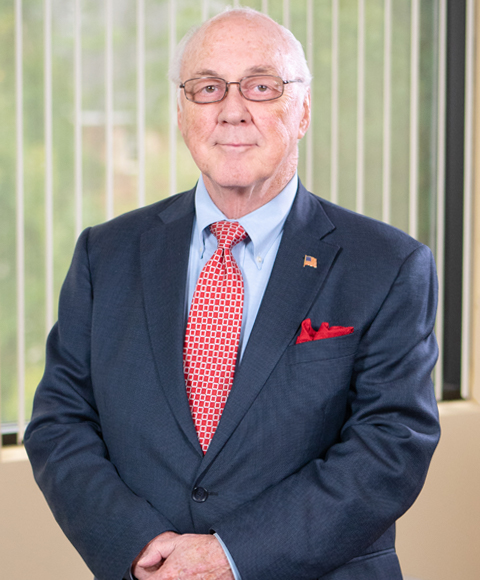Long Island Rep. Lee Zeldin, the Republican nominee for New York governor, has pledged to remove Manhattan District Attorney Alvin Bragg, a Democrat, on January 1st if he is elected.
While legal experts note the state constitution does provide a mechanism for removing certain public officials, including district attorneys, they also say that the process is more complicated than simply handing Bragg a pink-slip, with some critics viewing Zeldin’s pledge as an attack on democracy. The process has little historical precedent and could result in nullifying the will of voters who cast their ballot for Bragg last year.
Bragg — the first African-American district attorney elected by Manhattan voters — has come under fire from Republicans and some Democrats alike for his approach to criminal justice prosecutions. Days after Bragg took office, he faced blowback over a memo directing his office to limit prosecution for certain low-level offenses, which he later revised in response to the criticism. And most recently, his office’s decision to charge a bodega clerk in Harlem with murder in what critics say was an act of self-defense faced outcry, though in this case, for being too aggressive.
Zeldin’s pledge is part of his tough-on-crime messaging, a driving theme throughout his campaign, which he hammered home in language when he won the Republican nomination. He has since amplified that message on social media.
“I saw this provision in the New York State Constitution. It says that the governor can fire a district attorney if they refuse to enforce the law,” Zeldin told supporters on primary night in June. “In January, right after I take that oath, the first thing that I am going to do is to turn to the Manhattan District Attorney Alvin Bragg and tell him he’s fired.”
Last week, he held a press conference outside of Bragg’s office in Lower Manhattan and tweeted an online petition calling for Bragg’s ouster that was connected to the Republican fundraising platform “WinRed.”
In response, Bragg’s communications director Danielle Filson cited the office’s record-high gun prosecutions, and the fact that homicides and shootings are both down in Manhattan year-to-date. Filson said they’re focused on the work and not the politics. Bragg’s term runs through 2025, when he would be eligible to run for re-election.
What the law says
“Zeldin’s threat sounds like he may need to brush up on the law,” said Jerry Goldfeder, a state election law expert. While Goldfeder acknowledged that the state constitution and statutes grant authority to the governor to remove some officials, he stressed that a procedure would need to be followed, even if those details are less defined in the law.
“One thing is clear: the governor may have the authority to initiate removal proceedings but can’t do it unilaterally without due process,” Goldfeder said.
The governor’s authority to initiate the dismissal proceedings is derived from Section 13 of the state constitution and Section 34 of the Public Officers Law. The law also applies to elected sheriffs and county clerks, in addition to district attorneys.
According to the state constitution: “The governor may remove any elective sheriff, county clerk, district attorney or register within the term for which he or she shall have been elected; but before so doing the governor shall give to such officer a copy of the charges against him or her and an opportunity of being heard in his or her defense.”
Taken together, the laws indicate that the governor would need to provide written notice to the official, conduct an investigation and hold a hearing at least eight days after the official notice has been provided. The person facing removal would also have an opportunity to be heard in his or her self-defense.
A spokesperson for Zeldin’s campaign did not respond to a Gothamist inquiry about what charges Bragg would face.
“If the governor decided on day one that he wanted to initiate the process, he could do it,” said Donald Chesworth, an attorney in Rochester, where he was elected as the Monroe County district attorney in 1981 and went on to be appointed superintendent of the New York State Police in 1983 by then-Gov. Mario Cuomo.
He said Zeldin’s threat is one that should not be dismissed: “It’s not something you can discard because the governor does have the authority to put that process in motion and if the facts develop as he would like, then clearly the law allows him to do it,” added Chesworth.
Others experts insist the process would likely take far longer.
“There is a basis in law for the governor to seek to remove a D.A., but there would be a lot of process involved before it could happen,” said Richard Briffault, a professor at Columbia Law School who specializes in state and local government. Asked if Zeldin’s statement verged on misinformation, Briffault said, “I would call it exaggeration.”
Historical lessons
There have been instances where a governor has sued a district attorney over the handling of a specific case. In 1996, the court ruled in favor of then-Gov. George Pataki who pulled a case involving the murder of a New York City police officer from then-Bronx District Robert Johnson over his refusal to pursue the death penalty. (The state’s highest court deemed the death penalty unconstitutional in 2004.)
“The governor has the power, usually working with the attorney general to supersede a D.A. in an individual case or category of cases,” Briffault said.
When it comes to removing the person from office, Briffault said, the state constitution does grant the governor “ultimate authority” but that would involve showing the D.A. had fallen down on the job across the board, “rather than maybe had a shortcoming in a particular category of cases.”
There is little historical precedent for a governor to fully remove a district attorney from office.
In 1932, then-Gov. Franklin Roosevelt removed a sheriff from New York County in connection to broader, ongoing corruption investigations into Tammany Hall, the powerful New York City Democratic political organization.
(Later that same year, Tammany-aligned Mayor James Walker resigned in the face of potential removal hearings.)
Threats to democracy?
Despite there being a mechanism for removal, elected officials warn that the move threatens to thwart the will of Manhattan voters.
Assemblymember Al Taylor, who represents the 71st Assembly District in Upper Manhattan, said Zeldin’s pledge made him question his commitment to democracy. Taylor, who was and remains a Bragg supporter, said he was also concerned about an attack on Bragg personally.
“I don’t want this to be a Black and white conversation, but I find it strange that he’s kind of like, you know, who can I make a poster boy to beat up?” Taylor said.
Good government leaders insist it’s better to campaign against an official when they face the end of their term as opposed to threatening to remove them.
“It’s a radically undemocratic approach in terms of its policy and the message it sends,” said Susan Lerner, executive director of Common Cause New York, who also stressed that there was a lengthy procedure that would need to take place before anyone was removed from office.
She also stressed how a threat like this fits into a pattern of people seeking to undermine the will of voters, as in 2020 when 147 House members including Zeldin refused to certify the results of the presidential election.
“I think it is part and parcel of the same approach, which seeks to undercut if not actively destroy our democracy and to ignore the will of the voters,” said Lerner. “It’s very alarming.”



